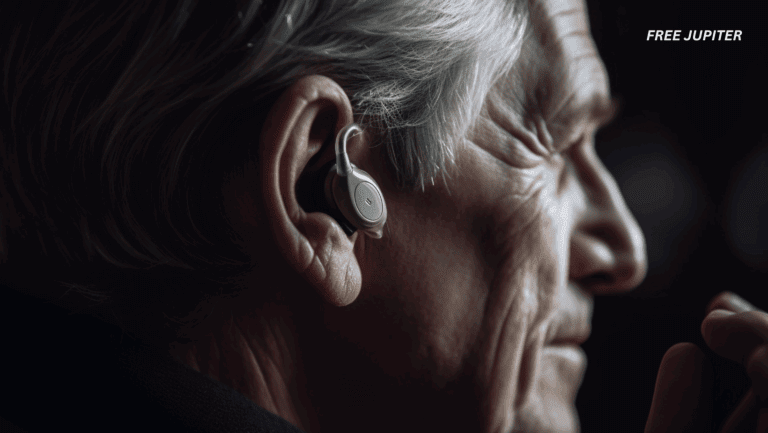Let’s admit it—dinner isn’t just a meal, it’s a cultural event. Across the globe, the time people eat dinner varies wildly. Americans are known for their early bird habits, Italians take their sweet time, and in Spain, dinner can begin when others are already in bed. But beyond these quirks of tradition and geography, there’s a more universal question lurking: Is there actually a “healthiest” time to eat dinner?
According to science-backed insights, the answer is yes—but with a few caveats. It’s not just about when you eat, but also how that timing fits into your body’s natural rhythms and daily routines.
The Three-Hour Rule: What Your Body Secretly Wants
One of the simplest and most effective guidelines offered by experts is this: finish eating at least three hours before you go to bed. That means if your bedtime is around midnight, aim to stop eating by 9 p.m.—no midnight snacks included.
Why? Because your body is on a schedule. Even if your calendar is chaos, your circadian rhythm—your body’s built-in 24-hour clock—is quietly running the show in the background. It decides when you’re supposed to feel alert, sleepy, hungry, or full. And late-night meals can throw it off balance.
When you eat too close to bedtime, your body receives mixed messages: “Should I be digesting or winding down for sleep?” This confusion can mess with both your sleep quality and metabolism. Eating late may also prompt your body to hold on to calories more stubbornly, since it assumes you’re still in active mode.
It’s a bit like trying to fall asleep while your brain thinks it’s still in a fluorescent-lit office. Not ideal.
Time-Restricted Eating: More Than Just a Trend
If you’ve heard of intermittent fasting or “eating windows,” this is where things get even more interesting. Time-restricted eating is a version of fasting where all your meals happen within a specific window—usually 8 to 12 hours—and you fast for the rest of the day.
According to nutrition expert Dr. Adam Collins, this gives your body a chance to enter what’s called a catabolic state—a natural process where your system starts using fat for fuel instead of sugars and carbs. That’s great news for people trying to lose weight or improve their metabolic health.
Your body is like a hybrid car. During the day, you run on easy-to-access carbs. At night—or during fasting—you switch to fat as a backup fuel source. But that only happens if you let your body take that break between meals. If you’re constantly grazing, especially late at night, the switch never happens.
Read more:Science Confirms: Losing a Dog Hurts Just Like Losing a Human Loved One
Morning vs. Evening: When Should You Eat More?
So, if you have to pick between eating more in the morning or evening, which is better?
Experts tend to agree: front-loading your calories earlier in the day is ideal. In simple terms, eating a hearty breakfast and lunch gives your body more time to process and burn those calories during your active hours.
Your digestive system, like your brain, works better when it’s fully awake. Early in the day, your metabolism is sharper, your insulin sensitivity is higher, and your body is better equipped to turn food into energy—not fat.
And get this: people who live the longest (yes, centenarians!) tend to eat a light dinner, usually early in the evening. This gives their bodies plenty of downtime overnight to rest, reset, and detox.
It’s a real-life nod to that old-fashioned bit of wisdom: Eat breakfast like a king, lunch like a prince, and dinner like a pauper.
Read more: Alzheimer’s Might Not Be A Brain Disease After All: Scientists
But… Mornings Are Hard
Now here’s the honest reality: most people don’t wake up hungry enough to eat like royalty at breakfast. You’re not broken—this is totally normal. As you wake up, your body releases glucose into the bloodstream to give you an energy boost. That natural rise in blood sugar can make your stomach feel full, even when it’s not.
Plus, let’s face it—modern schedules aren’t always meal-friendly. Many people grab a coffee and call it breakfast, have a sandwich or snack for lunch, and finally settle down for a proper meal at night. That late dinner often becomes the biggest (and sometimes only) real meal of the day.
So what can you do?
Practical Tips That Still Keep You Healthy
Dr. Collins says not to panic if your schedule doesn’t allow a 6 p.m. dinner every night. The key is consistency and giving your body some space between meals. A few smart tweaks can make a huge difference:
- Late dinner? Just keep it balanced and avoid snacking afterward.
- Early dinner? Even better—especially if you can fast for 12 hours overnight.
- Big dinner after a workout? Totally fine. In fact, it might even help your muscles recover.
- Can’t eat big in the morning? Try a low-carb, high-protein breakfast to avoid insulin spikes and keep hunger in check later.
The real takeaway isn’t to flip your entire life upside down—it’s to pay attention to patterns. Are you eating late and staying up late? Are you snacking for hours on end after dinner? Those are the habits that disrupt your metabolic harmony.
Listen to Your Body—It Knows What It’s Doing
Ultimately, the “perfect” dinner time isn’t the same for everyone. If you’re eating at 8:30 p.m. but still sleeping well, keeping healthy cholesterol levels, and maintaining good energy—you’re probably doing just fine.
But if you’re having sleep trouble, feeling sluggish, or noticing other health hiccups, that might be your body’s way of saying, Hey, let’s rethink this dinner thing.
Longo’s final advice? Stick to a 12-hour eating window and aim to wrap up dinner three hours before you hit the pillow. If needed, consider shifting your calories earlier in the day—and see how your body responds. You don’t have to be rigid—just aware.
Read more: Scientists Reveal The Minimum Amount Of Exercise You Need To Offset Sitting All Day
Final Thoughts: A Little Shift Goes a Long Way
Eating habits aren’t just about food—they’re about rhythm, rest, and how we support the natural systems our bodies are already designed to follow. There’s no need to follow every trend or overhaul your entire lifestyle overnight. Sometimes, the smartest change is simply moving dinner a bit earlier, eating a little lighter in the evening, or letting your body rest between meals.
It’s not about perfection—it’s about alignment. And your digestive system, your sleep cycle, and even your mood will thank you for it.










